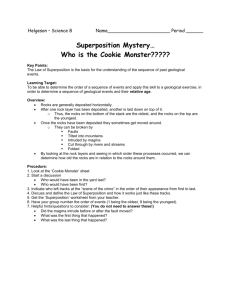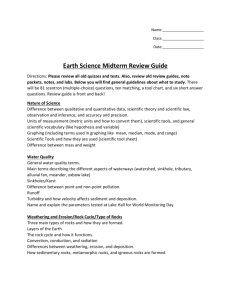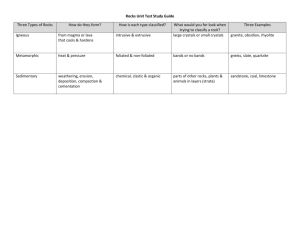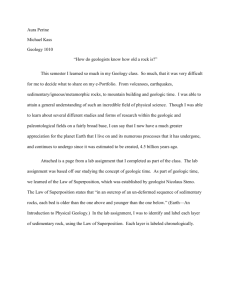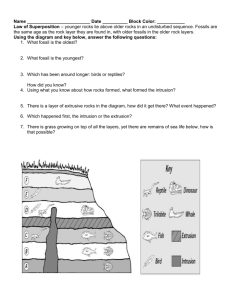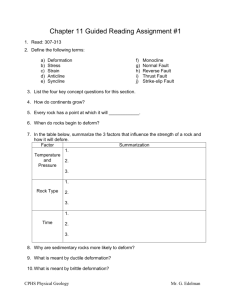Superposition Mystery
advertisement
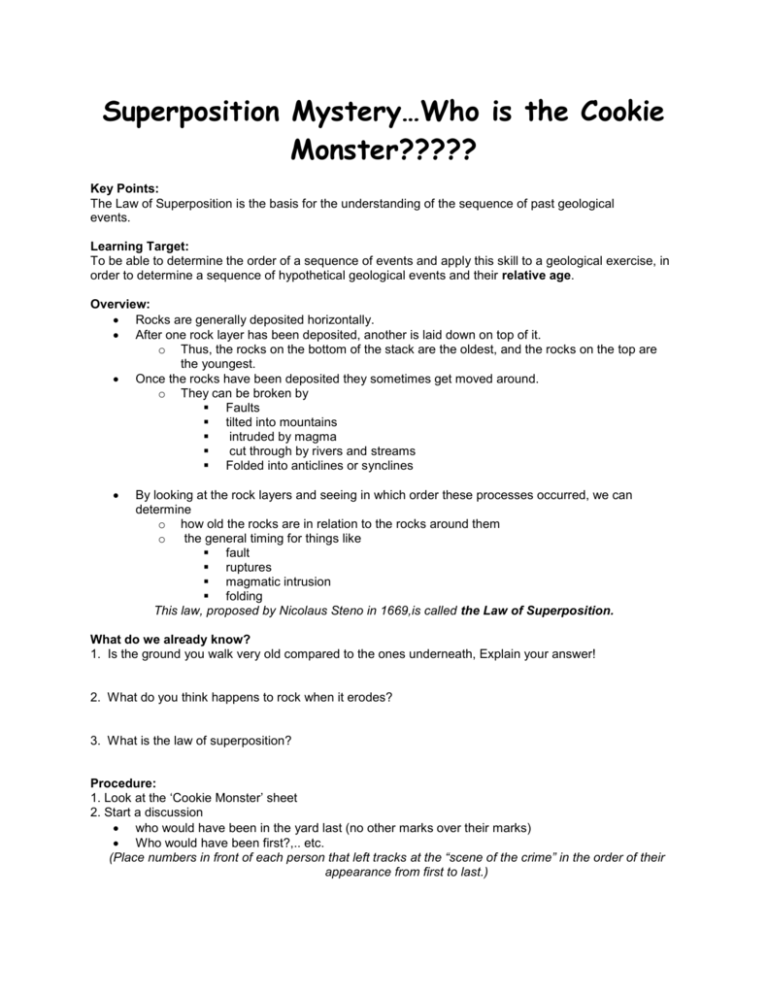
Superposition Mystery…Who is the Cookie Monster????? Key Points: The Law of Superposition is the basis for the understanding of the sequence of past geological events. Learning Target: To be able to determine the order of a sequence of events and apply this skill to a geological exercise, in order to determine a sequence of hypothetical geological events and their relative age. Overview: Rocks are generally deposited horizontally. After one rock layer has been deposited, another is laid down on top of it. o Thus, the rocks on the bottom of the stack are the oldest, and the rocks on the top are the youngest. Once the rocks have been deposited they sometimes get moved around. o They can be broken by Faults tilted into mountains intruded by magma cut through by rivers and streams Folded into anticlines or synclines By looking at the rock layers and seeing in which order these processes occurred, we can determine o how old the rocks are in relation to the rocks around them o the general timing for things like fault ruptures magmatic intrusion folding This law, proposed by Nicolaus Steno in 1669,is called the Law of Superposition. What do we already know? 1. Is the ground you walk very old compared to the ones underneath, Explain your answer! 2. What do you think happens to rock when it erodes? 3. What is the law of superposition? Procedure: 1. Look at the ‘Cookie Monster’ sheet 2. Start a discussion who would have been in the yard last (no other marks over their marks) Who would have been first?,.. etc. (Place numbers in front of each person that left tracks at the “scene of the crime” in the order of their appearance from first to last.) 3. Discuss and define the Law of Superposition and how it works just like these tracks.(Define below) 4. Get the Superposition worksheet from your teacher. 5. Have your group number the order of events (1 being the oldest , 9 being the youngest). 6. Helpful hints/questions to consider: (You do not need to answer these!) Did the magma intruded before or after the fault moved? What was the first thing that happened? (the bottom layer of rocks were deposited) Is there more then one interpretation? Earthquake would have made the fault pictured Post Lab Questions: 1. What could scientists learn by using the Law of Superposition? 2. How could this help people learn about earthquakes? 3. Is there any way to determine when the magma actually intruded with these clues only? 4. Could we use fossils to help determine the age of rocks (and thus the age of magmatic intrusion)? 5. What other methods could scientists use to date rocks? Cookie Monster tracks Someone took the last cookie in the cookie jar last night. The last person to leave the scene is the culprit. Who was it?___________________________________ Clues: The Butler walks to work The Handyman rides a bike The Cook rides a motorcycle The Maid drives a car The Nephew has a seeing-eye dog ________ Earthquake (Fault line) ________ Deposit D ________ Deposit B ________ Deposit G ________ Intrusive Lava ________ Deposit R ________ River cuts through ________ Deposit E ________ Deposit A
